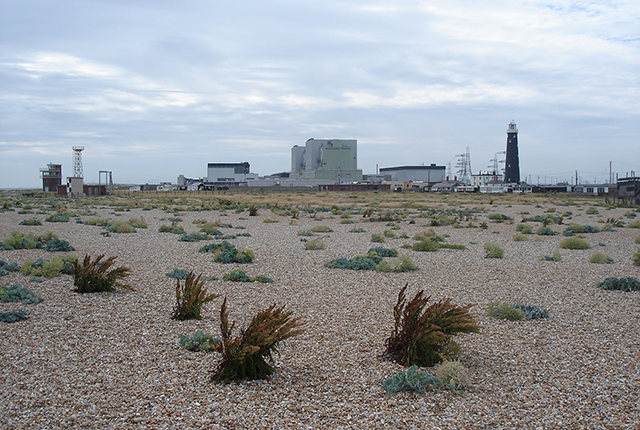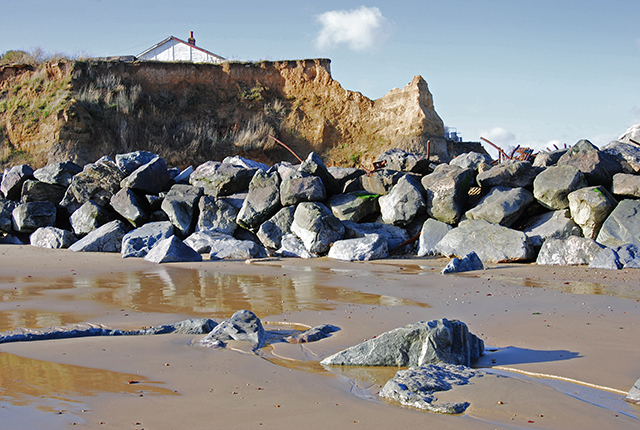BGS scientists on board research vessel in Japan in major marine research collaboration
Experts from BGS's marine team are part of a major international marine research collaboration to understand more about earthquakes associated with the Japan Trench.
25/11/2022 By BGS Press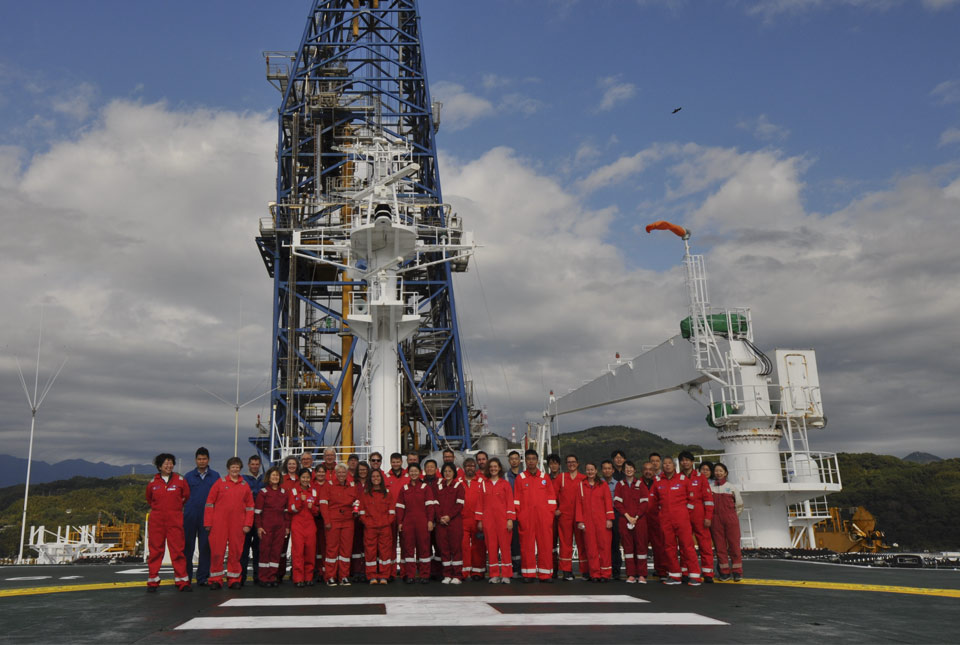
BGS scientists are taking part in a ground-breaking expedition to core the seabed in the ultra-deep waters of the Japan Trench, learning more about powerful earthquakes associated with the subduction of the Pacific Plate beneath Japan.
Subduction is a geological process that takes place in areas where Earth’s tectonic plates collide, such as at the Japan Trench. It has led to disastrous megathrust earthquakes like the 2011 Tohoku-Oki quake. A magnitude-9 earthquake shook the region, unleashing a devastating tsunami with waves up to 38 m high.
Currently, scientists have no way of knowing whether a large-scale earthquake or tsunami, triggered by movement on major faults in the Pacific Northwest, will happen today, tomorrow or hundreds of years from now. The International Ocean Discovery Program (IODP)‘s Expedition 386: Japan Trench Paleoseismology is searching for answers to some of the most important questions about earthquake cycles and their characteristics, work which could help inform the probability of major events in future.
The IODP is an international marine research collaboration that explores Earth’s history and dynamics using ocean-going research platforms to recover data recorded in sea-floor sediments and rocks, and to monitor subsea-floor environments.
Experts in marine geoscience at BGS are supporting operations for a personal sampling party (PSP), taking place from November to December 2022 in Japan’s international port of Shimizu. The PSP is being attended by 23 of the expedition’s 33 global research scientists, who have come to use a dedicated core laboratory uniquely located aboard the drilling vessel DV Chikyu. They are collecting personal samples from giant piston cores to support their personal research ambitions.
It is organised and supported by the European Consortium for Ocean Research Drilling (ECORD) Science Operator (ESO) and the Institute for Marine-Earth Exploration and Engineering (MarE3) within the Japan Agency for Marine-Earth Science and Technology (JAMSTEC).
BGS’s marine geoscientists Dr Jeremy Everest, Dr Hannah Grant and Dr Margaret Stewart and data manager Mary Mowat are helping to project manage and coordinate the science party, taking responsibility for myriad tasks including logistics, sample planning, data management, data dissemination and report compilation. They will be working alongside technical and research staff 24 hours a day, seven days a week, until the last section of the last core is sampled.
Our staff are thrilled to be once again working face-to-face with our operational partners and the science party, to deliver our ninth expedition for IODP.
This expedition is focused on developing the field of palaeoseismology, essentially using key locations in the sediments deep in the Japan Trench as ‘palaeoseismometers’ to create a long-term geological record of giant earthquakes. The scientists hope to extend the 1500-year historical record by 10 or even 100 times. The work is, of course, extremely relevant to the people of Japan and everyone living in other earthquake-prone regions of the world.
David McInroy, BGS Marine Geoscientist and ESO Project Manager.
BGS is well placed to provide project support to the expedition, having delivered expertise in marine geoscience over a number of decades, providing independent and expert geological advice, research and data acquisition to anyone working in the marine environment.
Offshore operations to collect the core began in late April to early June 2021, after some delays due to the global COVID-19 pandemic. The JAMSTEC research vessel RV Kaimei sailed the length of the Japan Trench, with a Japanese giant piston coring team breaking records for the deepest cores and deepest samples ever recovered from below the sea surface, in water depths of more than 8 km.
The cores were split and research plans consolidated during an onshore science party, led by Japan’s science team and remotely supported by BGS and its ESO partners, between February and March 2022. Despite COVID-19 continuing to present considerable challenges, they collaborated with the rest of the international science team to successfully provide a framework from which to hang data and drive research.
The PSP is a very important part of the expedition’s journey, which will enable the science of Expedition 386 and its exciting discoveries to begin.
Follow the latest news and discoveries from Expedition 386 on the blog or follow #IODP #Exp386 on Twitter.
Relative topics
Related news

BGS scientists join international expedition off the coast of New England
20/05/2025
Latest IODP research project investigates freshened water under the ocean floor.
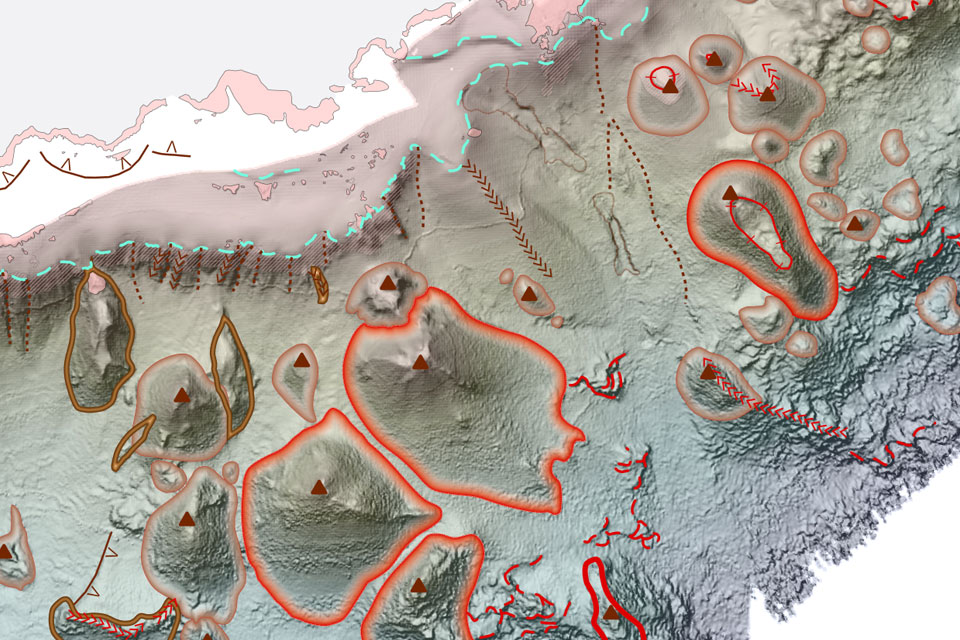
New seabed geology maps to enable long term conservation around Ascension Island
01/04/2025
BGS deliver the first marine geology and habitat maps for one of the world’s largest marine protected areas.
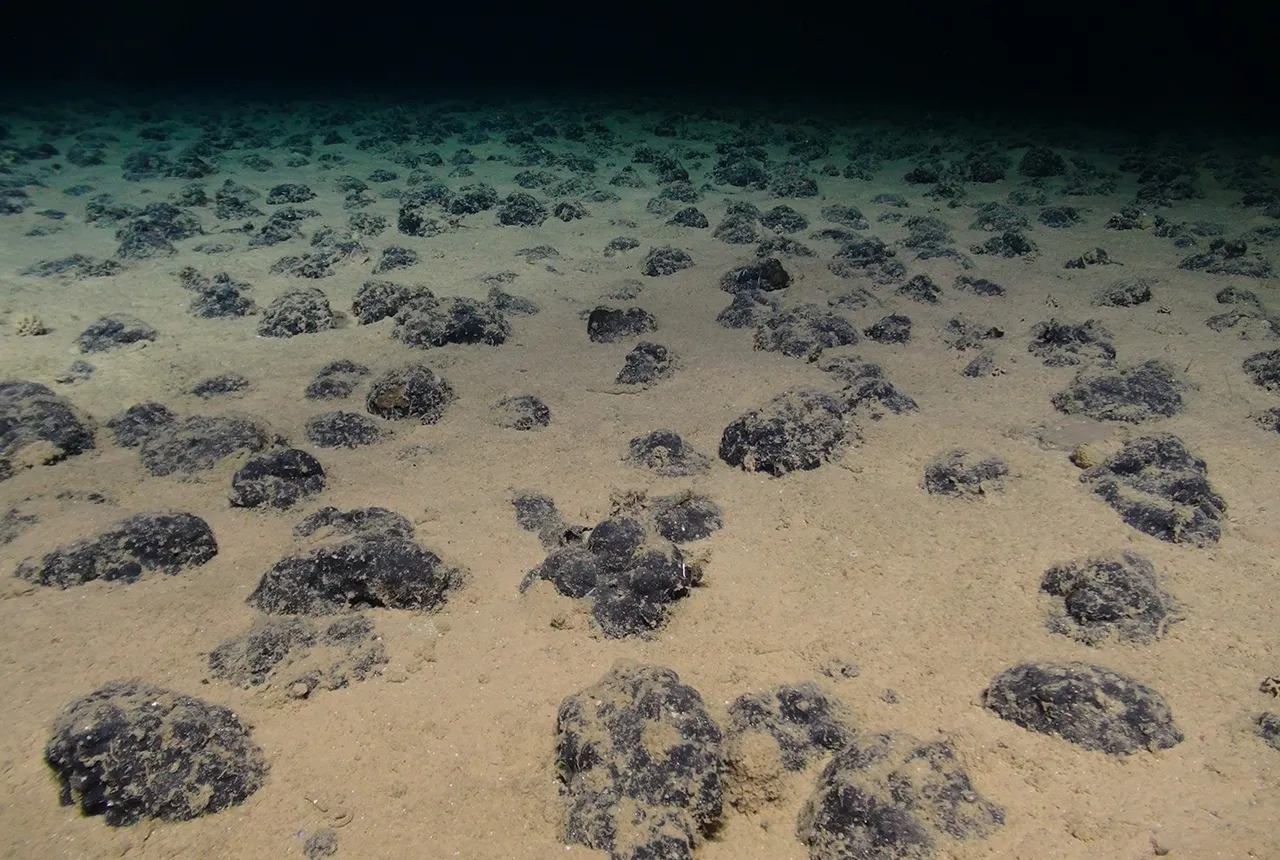
New study reveals long-term effects of deep-sea mining and first signs of biological recovery
27/03/2025
BGS geologists were involved in new study revealing the long-term effects of seabed mining tracks, 44 years after deep-sea trials in the Pacific Ocean.
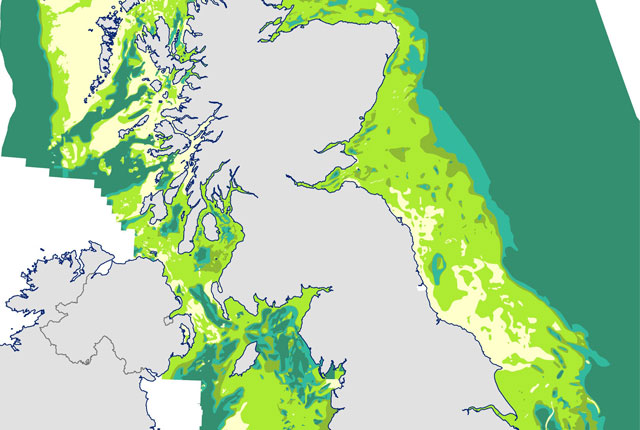
Seabed geology data: results from stakeholder consultation
31/01/2025
BGS collected valuable stakeholder feedback as part of a new Crown Estate-led initiative to improve understanding of national-scale seabed geology requirements.
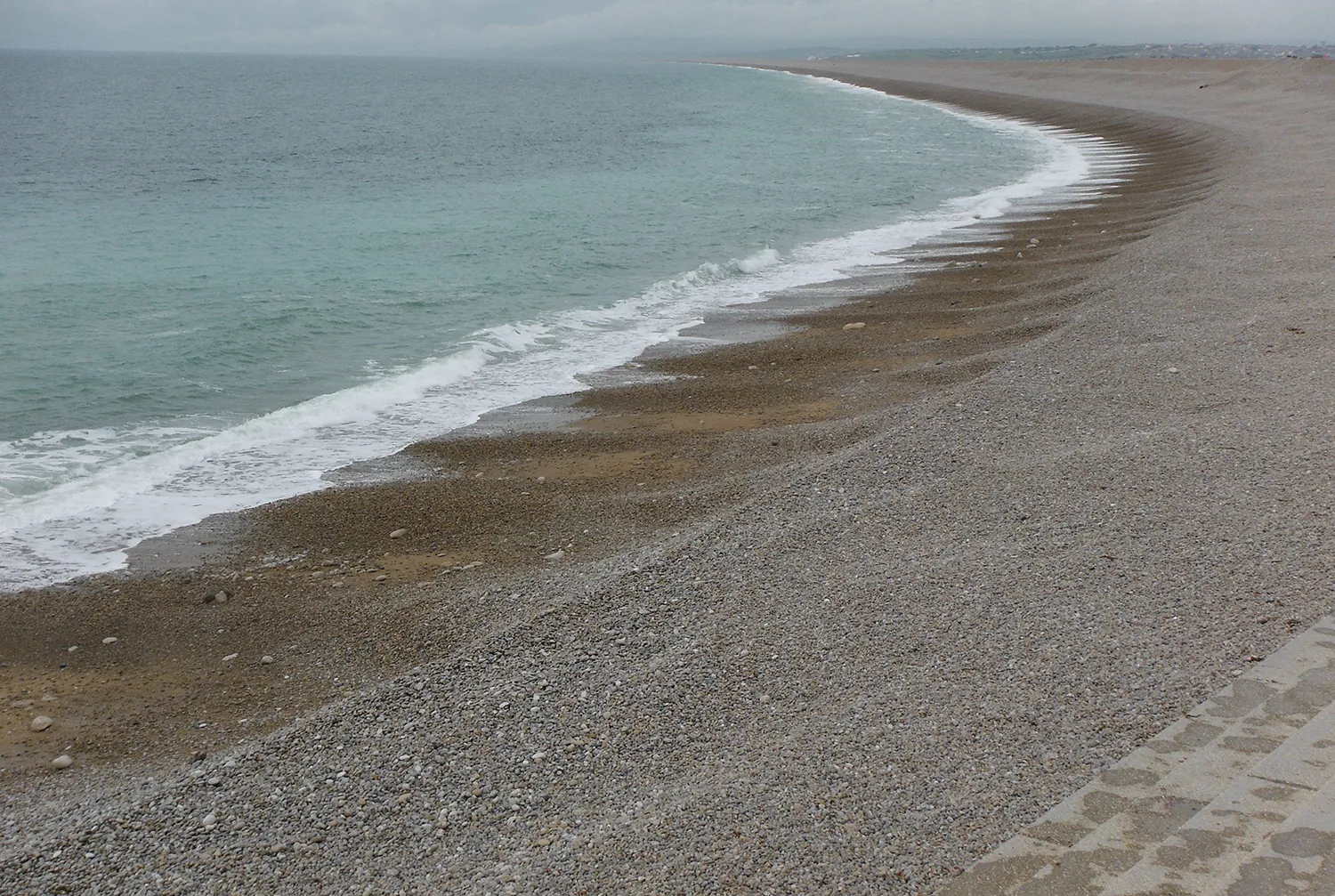
UKGravelBarriers
Increasing our understanding and modeling capabilities of gravel beach and barrier dynamics.
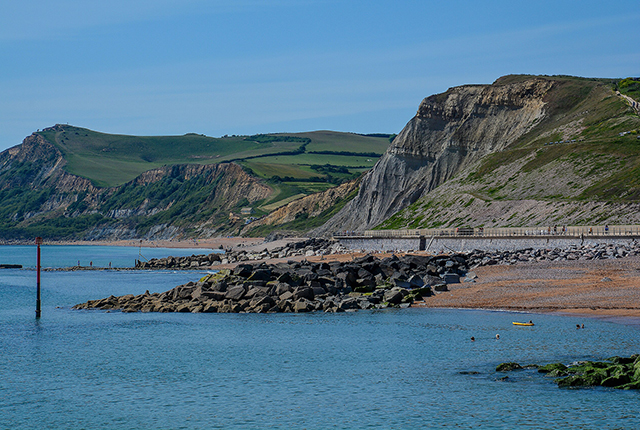
Monitoring coastal change from space
BGS is helping to develop applications that detect and track coastal erosion and accretion from space to inform coastal management plans.
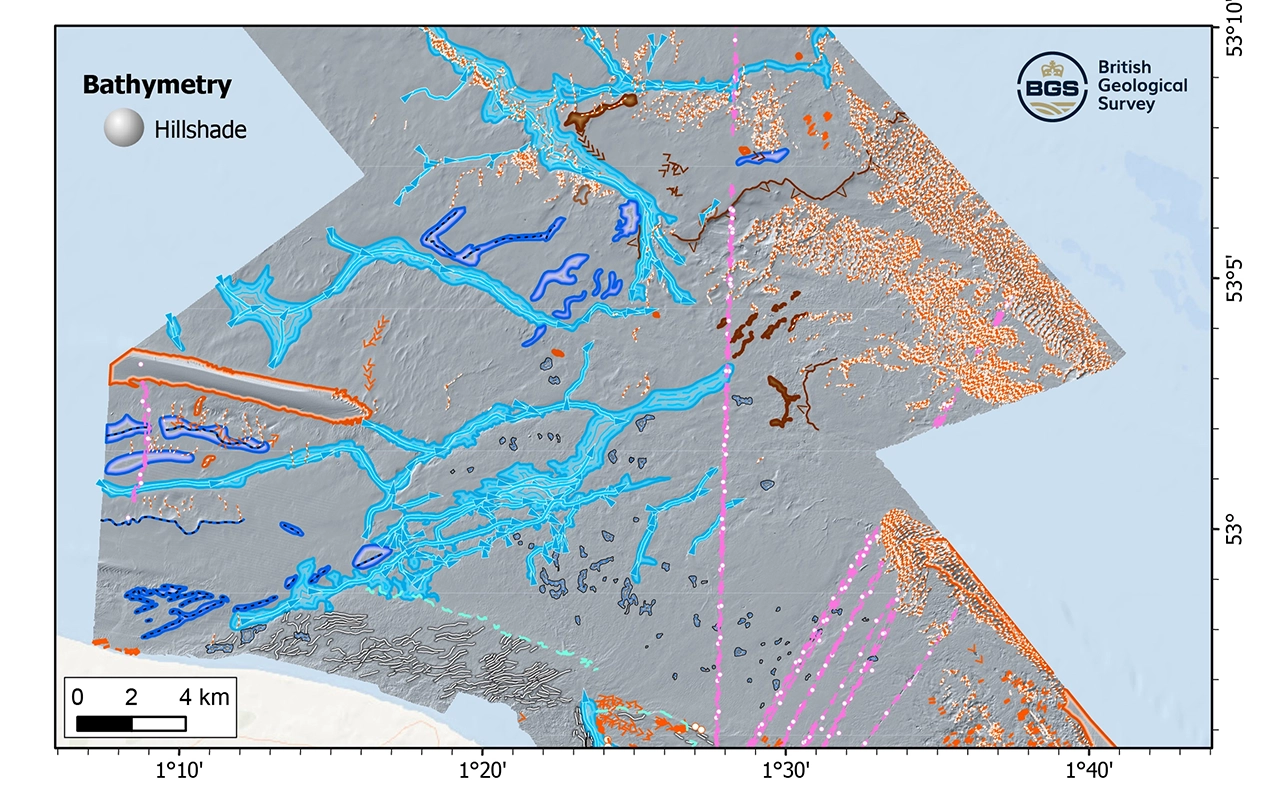
New research reveals the secrets of the seabed off the East Anglian coast
11/07/2024
New geological map will help in the hunt for new renewable energy opportunities whilst protecting delicate marine ecosystems.
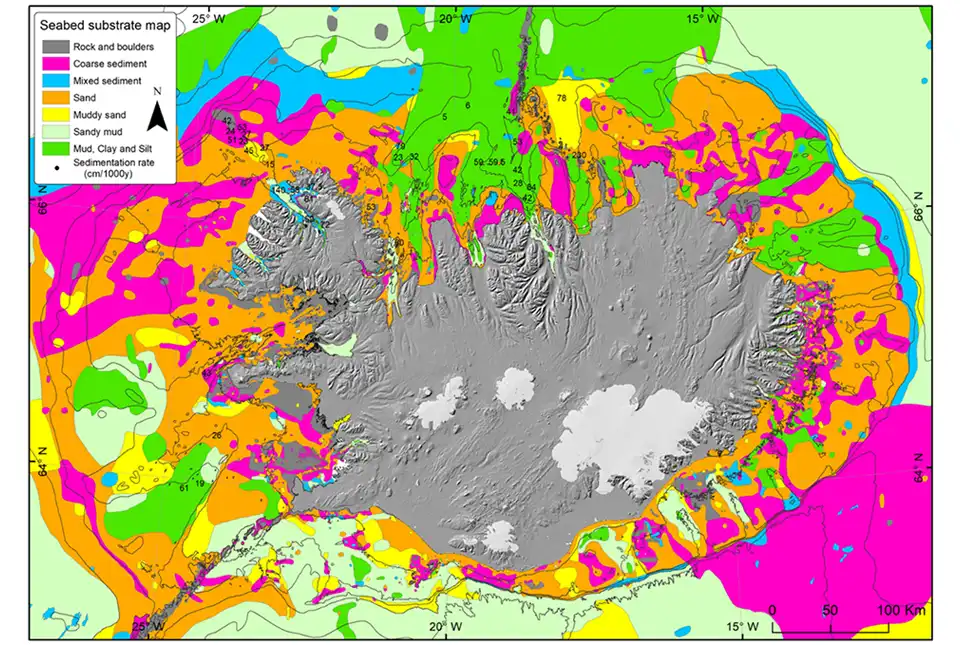
BGS awarded research grant to support potential offshore wind development in Iceland
13/05/2024
BGS has been awarded the NERC-Arctic grant for a collaboration project with Iceland GeoSurvey.
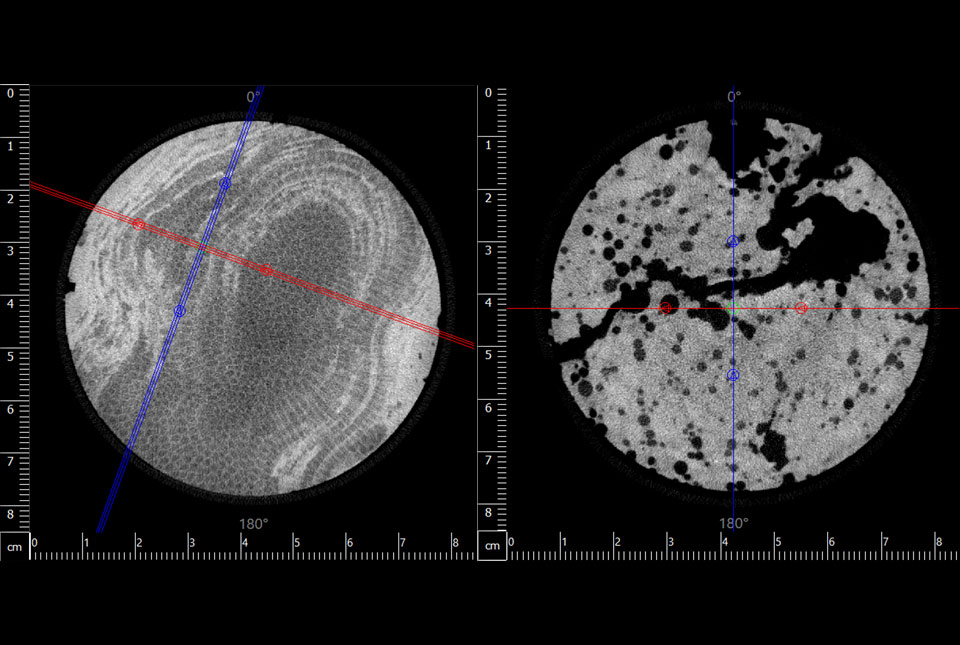
Largest CT core scan completed at the BGS Core Scanning Facility
09/05/2024
BGS has completed its largest CT core scan project to date, with around 400 m of core imaged for the IODP Drowned Reefs project.
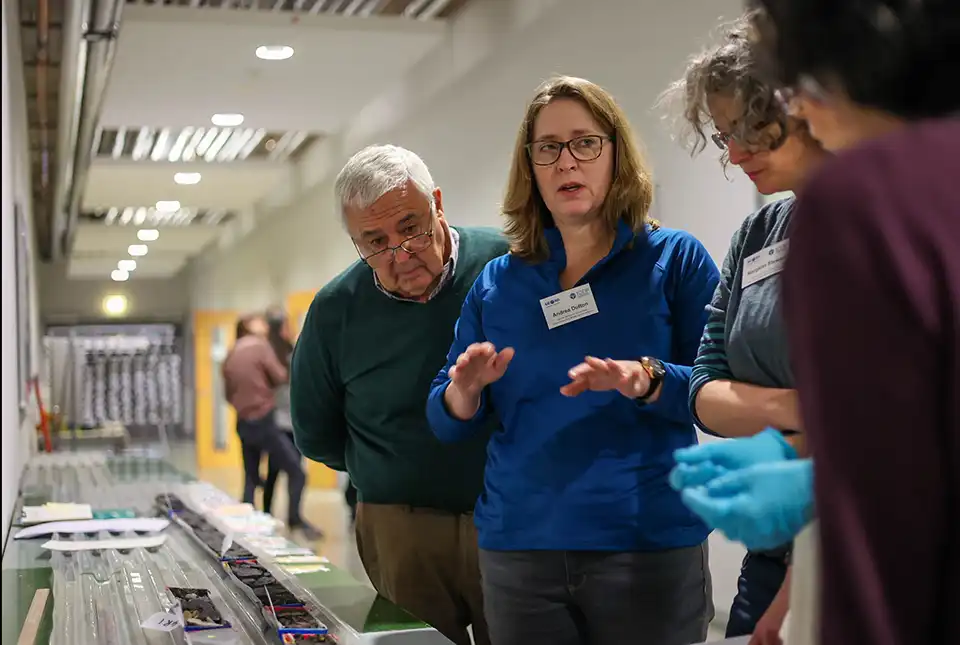
Scientists produce first record of environmental data off coast of Hawai’i
01/03/2024
An international team of researchers, including BGS geoscientists, have succeeded in acquiring a continuous record of environmental data using fossilised coral from Hawai’i.




